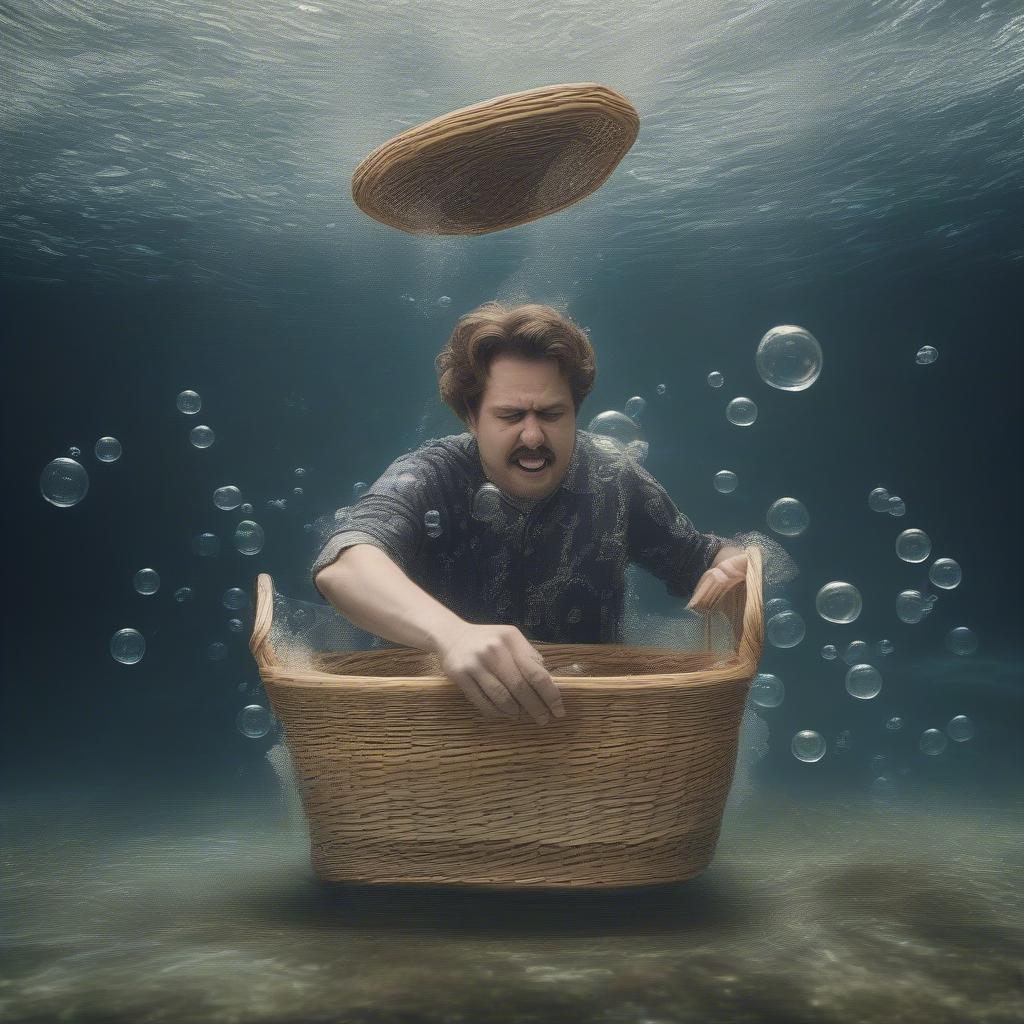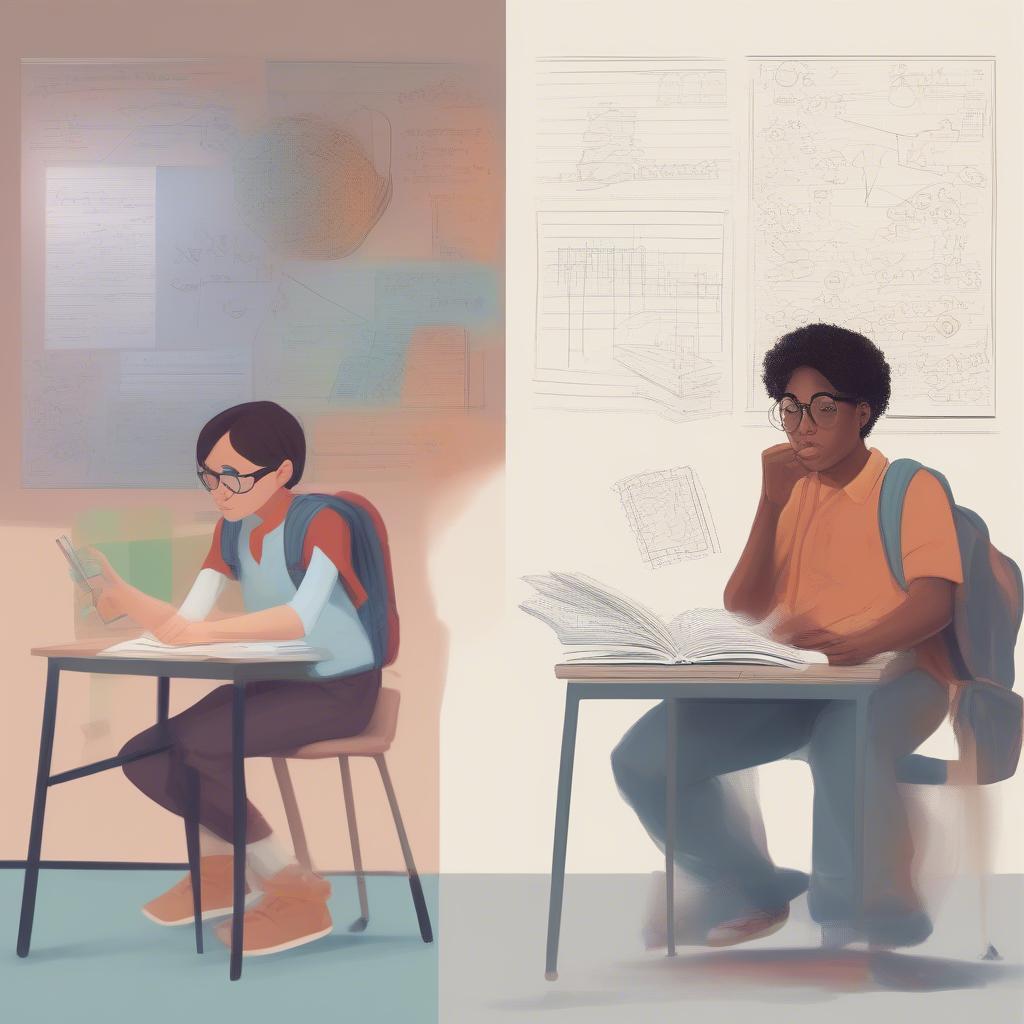Basket Weaving
Unraveling the Myth of the Underwater Basket Weaving Bachelor’s Degree
The term “underwater basket weaving bachelor’s degree” is often used to dismiss certain academic pursuits as frivolous or impractical. But what’s the real story behind this curious phrase? This article dives deep into the origins and meaning of underwater basket weaving, exploring its evolution from a humorous analogy to a representation of perceived academic “softness.” We’ll also examine how this term impacts perceptions of different fields of study and discuss the real-world value of seemingly unconventional educational paths.
The Origins of “Underwater Basket Weaving”: More Than Just a Joke?
The exact origin of the phrase “underwater basket weaving” remains somewhat murky. However, it’s generally believed to have emerged in the mid-20th century, likely within the context of American universities. It was initially used satirically to poke fun at perceived “easy” or non-traditional college courses, often those related to arts and crafts or other less conventionally academic subjects.
One theory attributes the term’s origin to the challenges faced by weavers trying to keep their materials dry. While this might seem plausible, there’s little evidence to support the idea that basket weaving was ever actually practiced underwater. It seems more likely the image of submerged basket weaving was simply a humorous way to exaggerate the perceived impracticality of certain college courses.
 Debunking the Myth of Underwater Basket Weaving
Debunking the Myth of Underwater Basket Weaving
From Satire to Stereotype: How “Underwater Basket Weaving” Impacts Education
Over time, “underwater basket weaving” transitioned from a playful jab to a dismissive stereotype. It became shorthand for any academic pursuit deemed less valuable or rigorous than traditional STEM disciplines. This perception has had real-world consequences, often influencing funding decisions, career prospects, and societal respect for certain fields.
The stereotype can discourage students from pursuing their passions, especially in creative fields. It reinforces the idea that certain subjects are inherently more valuable than others, potentially leading to a less diverse and innovative educational landscape. This limited perspective overlooks the transferable skills and critical thinking abilities fostered by a broad range of academic disciplines, including those often labeled as “underwater basket weaving.”
 How Stereotypes Affect Educational Choices
How Stereotypes Affect Educational Choices
Debunking the Myth: The Value of Diverse Educational Paths
While the image of underwater basket weaving may be amusing, the underlying stereotype it perpetuates is harmful. It’s important to recognize that a wide range of academic disciplines contribute to a well-rounded education and a thriving society. “Non-traditional” subjects often cultivate essential skills like critical thinking, creativity, communication, and problem-solving, which are highly valued in today’s job market.
Furthermore, dismissing entire fields of study as “underwater basket weaving” ignores the significant contributions these fields make to our understanding of the world and human experience. Art, history, literature, sociology, and countless other disciplines provide valuable insights into human culture, behavior, and the complex issues facing our world.
“A well-rounded education is crucial for developing critical thinking and creativity,” says Dr. Amelia Reed, a renowned education expert. “Dismissing certain fields as ‘less valuable’ limits individual potential and societal progress.”
 The Benefits of Exploring Diverse Educational Paths
The Benefits of Exploring Diverse Educational Paths
Underwater Basket Weaving Bachelor’s Degree: FAQs
- Does an “underwater basket weaving bachelor’s degree” actually exist? No, it’s a satirical term.
- What does the term represent? It symbolizes perceived “easy” or less valuable academic pursuits.
- Why is the term harmful? It perpetuates stereotypes and discourages exploration of diverse fields.
- What are the benefits of a broad education? It cultivates critical thinking, creativity, and diverse perspectives.
- How can we challenge the stereotype? By recognizing the value of all academic disciplines and promoting a more inclusive educational environment.
Conclusion: Beyond the Basket
The term “underwater basket weaving bachelor’s degree” may have started as a joke, but its implications are serious. It’s time to move beyond this dismissive label and recognize the value of diverse educational paths. By embracing a broader perspective on education, we can foster a more inclusive and innovative future, one where all fields of study are appreciated for their unique contributions. The true value of an education lies not in its perceived “practicality,” but in its ability to expand our minds, cultivate critical thinking, and empower us to contribute meaningfully to the world.
Common Scenarios and Questions
Scenario: A student is considering majoring in art history but is worried about job prospects.
Question: How can I explain the value of an art history degree to potential employers?
Scenario: A parent is skeptical of their child’s interest in a “non-traditional” field like anthropology.
Question: What are the real-world applications of anthropology, and how can it lead to a fulfilling career?
Further Exploration on Basket Weave
For more information on traditional crafts and the artistry of basket weaving, explore other related articles on our website. You can also find resources on the history and cultural significance of basketry around the world.
When you need support, please contact us at Hanoi, Vietnam or Tech Avenue, Suite 12, San Francisco, CA 94105, USA. We have a 24/7 customer support team.
